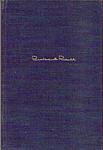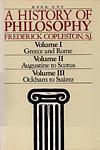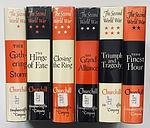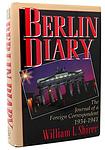The Greatest British "History" Books From 1940 to 1949
Click to learn how this list is calculated.
This list represents a comprehensive and trusted collection of the greatest books. Developed through a specialized algorithm, it brings together 289 'best of' book lists to form a definitive guide to the world's most acclaimed books. For those interested in how these books are chosen, additional details can be found on the rankings page.
Genres
The category of "History" in books refers to the study and interpretation of past events, societies, and cultures. It encompasses a wide range of topics, including political, social, economic, and cultural developments, as well as the lives of individuals and groups who have shaped the course of history. History books can be written from various perspectives and may focus on specific time periods, regions, or themes. They aim to provide readers with a deeper understanding of the past and its impact on the present.
Countries
Date Range
Reading Statistics
Click the button below to see how many of these books you've read!
Download
If you're interested in downloading this list as a CSV file for use in a spreadsheet application, you can easily do so by clicking the button below. Please note that to ensure a manageable file size and faster download, the CSV will include details for only the first 500 books.
Download-
1. Black Lamb and Grey Falcon by Rebecca West
"Black Lamb and Grey Falcon" is a comprehensive and detailed travelogue of Yugoslavia, penned by a British author during the brink of World War II. The book beautifully interweaves history, politics, culture, and personal experiences to paint a vivid picture of the Balkan region. It also serves as a profound reflection on the impending war and the author's concerns about the rise of fascism in Europe, making it not just a travel book but also an essential historical document.
-
2. The Second World War by Winston Churchill
This book provides a comprehensive overview of the Second World War from the perspective of one of its most influential leaders. It covers the entire span of the war, from its origins in the political and economic turmoil of the 1930s, to the major battles and strategic decisions that shaped its course, to its aftermath and impact on the world. The author's unique perspective and firsthand experience, combined with his eloquent and insightful writing, make this a definitive account of one of the most important events in modern history.
-
3. The Idea of History by R. G. Collingwood
"The Idea of History" is a philosophical examination of the concept of history, exploring its nature, the different methods of historical study, and its importance and role in society. The author asserts that history is not just a chronicling of past events, but a complex interaction between the historian and the facts, where the historian is not merely a passive recorder of facts, but an active participant in shaping the interpretation of those facts. The book also delves into the philosophy of history, discussing the idea of historical truth, the problem of historical causation, and the nature of historical evidence.
-
4. A History of Western Philosophy by Bertrand Russell
This book provides a comprehensive overview of Western philosophy from the pre-Socratic philosophers through the Middle Ages and the Renaissance, up to the early 20th century. It examines the ideas and contributions of major philosophers, including Plato, Aristotle, Descartes, Spinoza, Leibniz, Locke, Hume, Kant, and others, while also exploring the cultural and historical context in which their thoughts developed. The work is known for its accessible prose and critical perspective, as it not only presents philosophical concepts but also offers the author's analysis and interpretation of these ideas, highlighting their relevance to the broader sweep of human thought and society.
-
5. The Last Days of Hitler by Hugh Trevor-Roper
This book delves into the final days of Adolf Hitler's life, providing a detailed account of the events that unfolded in his bunker during the last ten days of World War II. It is based on interviews with surviving members of Hitler's close circle and other witnesses, as well as captured German documents. The author presents an in-depth analysis of Hitler's mental state, his relationships with his staff, his suicide, and the subsequent cover-up by his loyal aides. The book also debunks various myths and rumors about Hitler's death and escape.
-
6. A History of Philosophy by Frederick Charles Copleston
This book is a comprehensive overview of Western philosophy, starting from the Pre-Socratic philosophers to contemporary thinkers. It meticulously traces the evolution of philosophical thought, providing in-depth analysis of key figures and their contributions. The book also critically examines various philosophical doctrines, their influences, and their relevance to contemporary society. It's a valuable resource for anyone interested in understanding the origins, developments, and complexities of philosophical ideas.
-
7. Their Finest Hour by Winston Churchill
"Their Finest Hour" is the second volume in a series of books that recount the historical events of World War II from the perspective of a key political leader. This volume focuses on the period of intense conflict in 1940, particularly detailing the Battle of Britain and the strategic decisions and leadership that were pivotal during this time. It provides an in-depth look at the challenges faced, the resilience of the British people, and the speeches that rallied a nation under siege, offering insights into military strategies and the personal resolve of the author during one of Britain's most daunting periods.
-
8. Eastern Approaches by Fitzroy Maclean
"Eastern Approaches" is a thrilling memoir that recounts the adventurous experiences of a British diplomat and soldier during the 1930s and World War II. The author vividly describes his time in the Soviet Union during the Stalinist purges, his daring travels in Central Asia, and his pivotal role in the British military missions in North Africa and Yugoslavia. The narrative combines espionage, combat, and diplomatic intrigue, providing a unique insight into some of the most critical events and figures of the 20th century, including his interactions with prominent leaders like Josip Broz Tito.
-
9. Berlin Diary by William L. Shirer
"Berlin Diary" is a firsthand account of the rise of Nazi Germany and the early years of World War II as witnessed by an American journalist living in Berlin. The diary entries, spanning from 1934 to 1941, provide a detailed and personal observation of the events and atmosphere in Germany and across Europe during this tumultuous period. The author captures the impact of Nazi propaganda, the chilling transformation of society under totalitarian rule, and the international tensions leading up to and during the early stages of the war. His insights offer a crucial historical perspective on the inner workings and psyche of the Third Reich.
Reading Statistics
Click the button below to see how many of these books you've read!
Download
If you're interested in downloading this list as a CSV file for use in a spreadsheet application, you can easily do so by clicking the button below. Please note that to ensure a manageable file size and faster download, the CSV will include details for only the first 500 books.
Download







